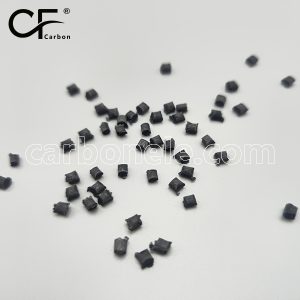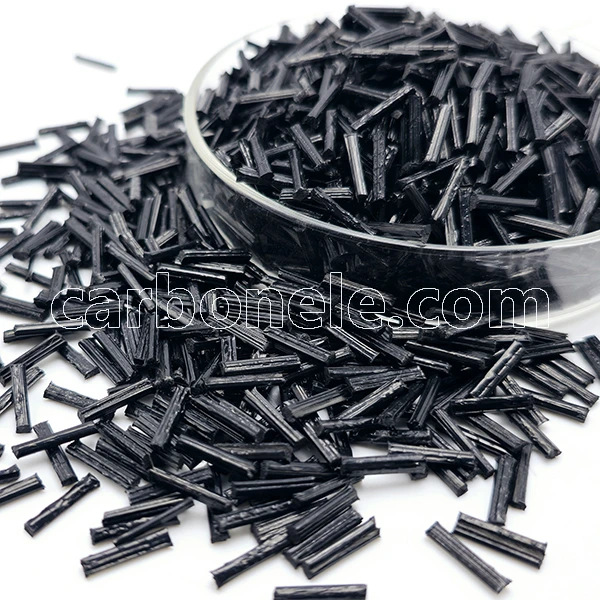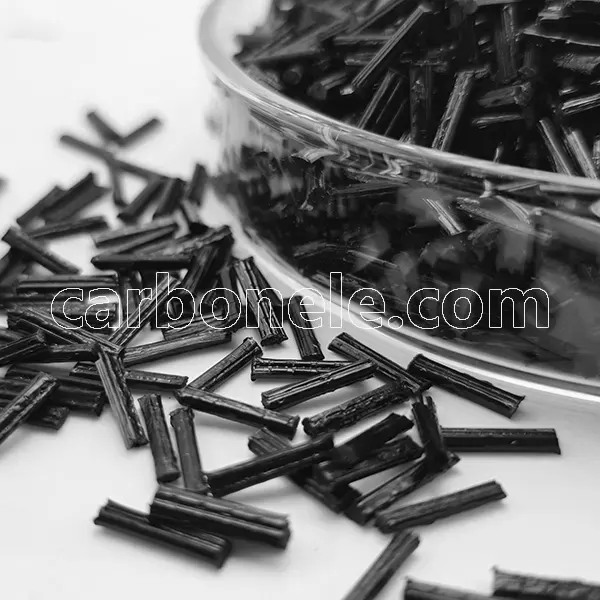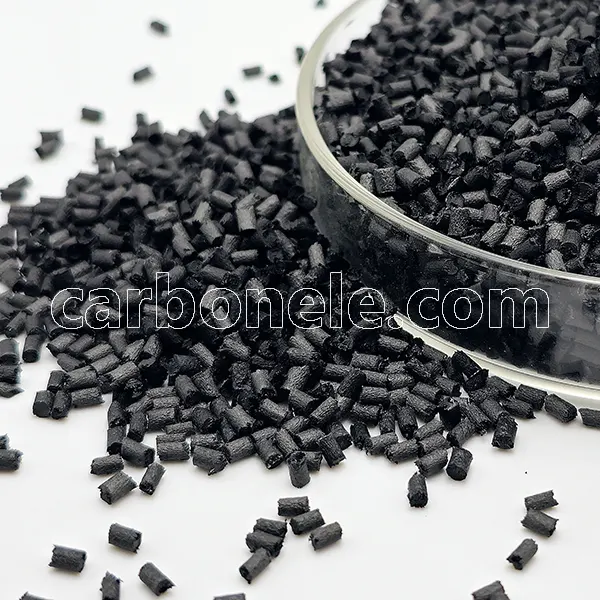The Benefits of PP-CF Materials in Product Development
Polypropylene Carbon Fiber (PP-CF) materials have become increasingly popular in various industries, particularly in automotive, aerospace, and consumer goods. The incorporation of carbon fibers into polypropylene enhances its mechanical properties, leading to improved performance across a wide range of applications. This article explores the advantages of PP-CF materials, specifically focusing on different grades ranging from PP-CF5 to PP-CF60, and how these materials contribute to product development.

How PP-CF material help products
Understanding PP-CF Materials
PP CF composites combine polypropylene, a thermoplastic polymer known for its lightweight and chemical resistance, with carbon fibers that provide superior strength and stiffness. The result is a composite material that retains the desirable properties of polypropylene while significantly enhancing its mechanical performance.
Mechanical Properties and Variants
| Variant | Carbon Fiber Content | Mechanical Properties | Typical Applications |
| PP-CF5 | 5% | Modest increases in strength and stiffness | Consumer products, packaging, low-load structural components |
| PP-CF10 | 10% | Improved tensile strength and stiffness | Automotive interior components, lightweight materials |
| PP-CF20 | 20% | Significant enhancement in mechanical properties | Automotive parts, body panels, structural components |
| PP-CF30 | 30% | Exceptional strength and rigidity | High-performance applications, sports equipment, automotive exteriors |
| PP-CF40 | 40% | Remarkable mechanical properties | Aerospace components, applications requiring safety and reliability |
| PP-CF50 | 50% | Unparalleled strength and stiffness | Advanced automotive applications, high-performance racing parts |
| PP-CF60 | 60% | Highest strength and stiffness of all variants | Specialized applications in aerospace and military sectors |
Advantages of PP-CF Materials
-
1. Lightweight
One of the most significant benefits of PP-CF (Polypropylene Carbon Fiber) materials is their lightweight nature. This characteristic is crucial in industries such as automotive and aerospace, where reducing weight can lead to enhanced fuel efficiency and overall performance. The lower weight of PP-CF composites not only helps in decreasing energy consumption but also improves handling and maneuverability in vehicles and aircraft. This advantage can translate to lower operational costs and reduced environmental impact over the lifecycle of the products.
2. Increased Strength and Stiffness
The incorporation of carbon fibers into polypropylene dramatically improves its strength and stiffness. This enhancement allows engineers and designers to create thinner and lighter parts without sacrificing durability. For example, in automotive applications, components made from PP-CF materials can withstand higher loads and stresses, contributing to the overall safety and longevity of the vehicle. The ability to design lightweight yet robust structures can lead to innovations in product development and open new possibilities for application in various industries.
3. Impact Resistance
PP-CF materials exhibit excellent impact resistance, making them suitable for applications that require durability under sudden loads or shocks. This property is especially beneficial in automotive components that face regular wear and tear, such as bumpers and underbody parts. Enhanced impact resistance means that these components can absorb more energy during a collision, potentially reducing damage and improving passenger safety. This characteristic also makes PP-CF materials ideal for sports equipment, where resilience and performance are paramount.
4. Chemical Resistance
Polypropylene is inherently resistant to many chemicals, and this property is retained in PP-CF composites. This makes them suitable for use in harsh environments where exposure to corrosive substances is a concern, such as chemical processing plants or outdoor applications. The chemical resistance of PP-CF materials allows for longer service life and reduced maintenance needs, resulting in lower operational costs over time. Industries that rely on materials that can withstand challenging conditions benefit significantly from the durability and reliability of PP-CF composites.
5. Versatile Processing
PP-CF composites can be easily molded and processed using standard thermoplastic processing techniques, such as injection molding, extrusion, and thermoforming. This versatility allows manufacturers to create complex geometries and designs that meet specific industry needs. The ability to produce intricate shapes with consistent quality is a significant advantage in high-volume production environments. Furthermore, the ease of processing PP-CF materials can lead to shorter production cycles and increased efficiency in manufacturing processes.
6. Cost-Effectiveness
Compared to other high-performance materials, PP-CF composites often provide a more cost-effective solution. While the initial costs of carbon fiber may be higher than traditional materials, the enhanced properties of PP-CF can lead to reduced material usage and lower manufacturing costs in the long run. The durability and performance of these composites often translate to fewer replacements and repairs, further contributing to cost savings. As industries continue to seek ways to reduce production costs while maintaining high-quality standards, PP-CF materials present a viable option.
7. Sustainability
As industries move towards more sustainable practices, PP-CF materials can contribute by reducing the overall weight of products, leading to lower energy consumption during use. Lightweight materials not only improve fuel efficiency in vehicles and aircraft but also reduce greenhouse gas emissions associated with their operation. Additionally, the recyclability of polypropylene enhances the sustainability profile of PP-CF composites, making them an environmentally friendly choice for manufacturers. By adopting PP-CF materials, companies can demonstrate a commitment to sustainability and environmental stewardship, appealing to increasingly eco-conscious consumers.
Concludtion
PP CF materials, with their range of grades from PP-CF5 to PP-CF60, offer significant advantages across various applications. By enhancing the mechanical properties of polypropylene, these composites provide solutions that meet the demands of modern engineering and design. As industries continue to innovate and seek lightweight, strong, and durable materials, the role of PP-CF composites will undoubtedly grow, paving the way for the next generation of products.
Previous News
What is Different Between PP and PP-CF?Next News
How to Improve the Toughness of PA66 CF Composi...
Feature Product
-
PA12 LCF30 for Drone Fuselages & Wings
What do you know about PA12 LCF30? PA12 ...
-
Competitive Price PA6 LCF30 Composites
What’s it? PA6 LCF30, which stands...
-
ABS CF10 Compound ABS 10%CF Thermoplastic Compo...
What’s ABS CF10? ABS CF10 refers t...








